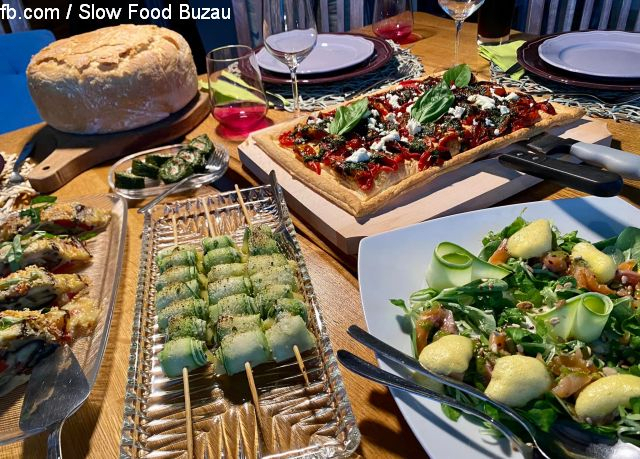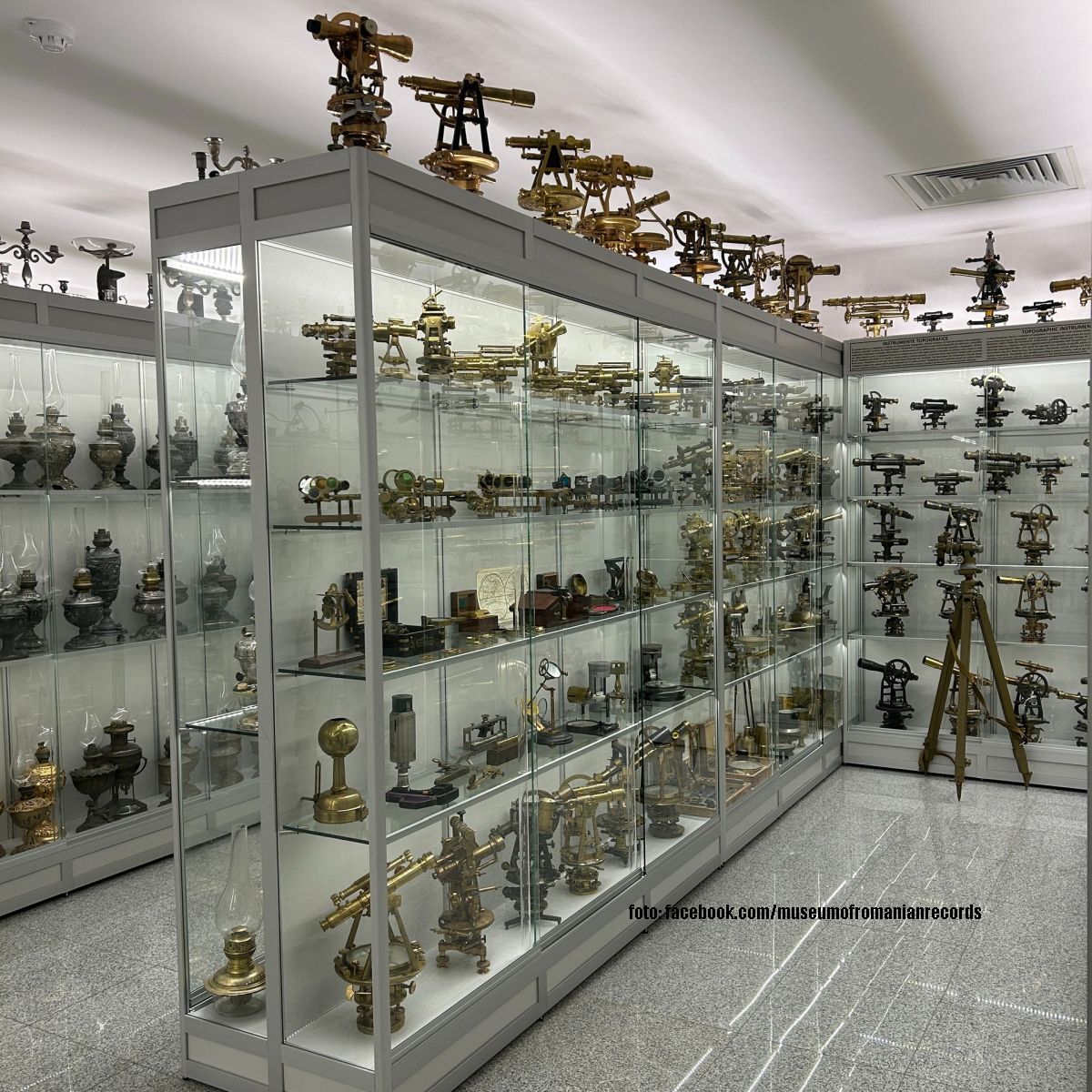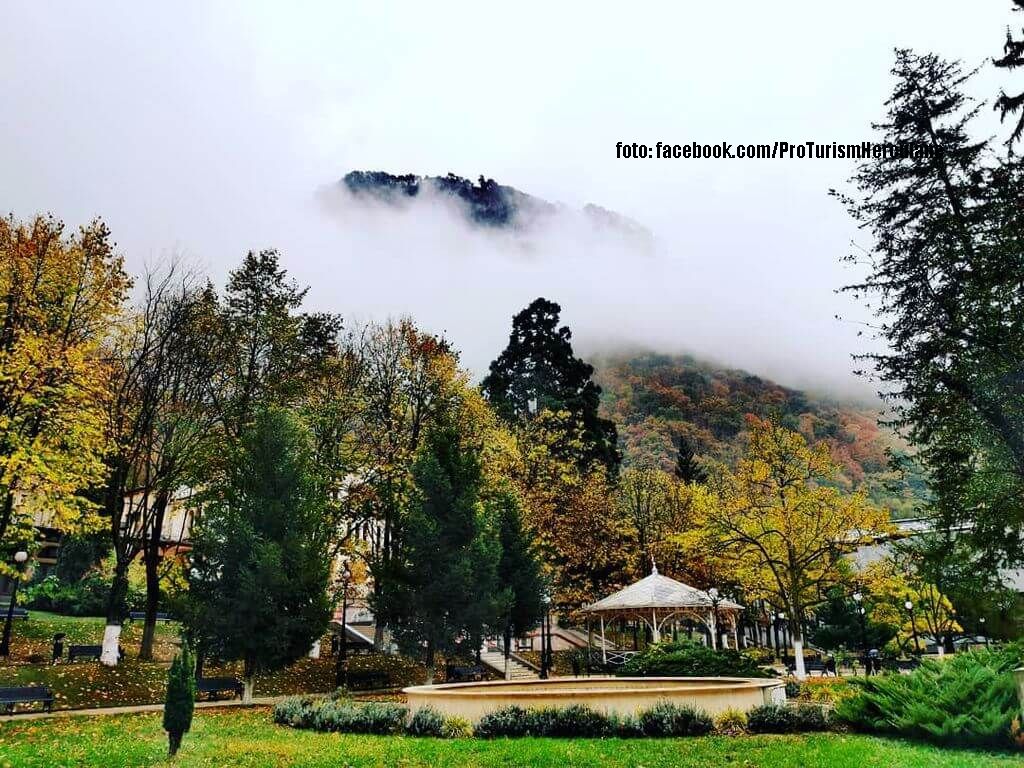Tourist assets in Buzau county
A new concept of cooking and its impact on Romanian tourism

Daniel Onea, 28.09.2023, 14:00
Buzau County is renowned because of its
tourist assets, but mostly because of its wine cellars. Slow Food Travel offers
a new model of tourism, made of encounters with farmers, cheese makers,
shepherds, bakers and vine growers who, jointly with the cooks who cook their
produce, will be the narrators of their local areas and sole guides for the
local traditions. Our guide for today’s journey is Thorsten Kirschner, a founding
member of Buzau Slow Food Community, the realm of legends and savors. Thorsten
arrived in Romania 13 years ago. He spent two years in Bucharest, then he
retired to Buzau. There he bought a mansion and founded an association
promoting traditional craft produce.
Thorsten Kirschner:
Slow food is a global
movement that has been gaining ground in more than 160 countries, providing
access to healthy food. It is an alternative to fast-food, created in Italy in
the 1980s. As we speak, it is very active in Transylvania, in Brasov, Sibiu, Cluj, and Buzău. We’re more like an NGO, bringing
together farmers, food producers, agro-tourism guesthouses, restaurants and
lovers of healthy and sustainable food. The idea we have come up with what that
of creating a platform for the promotion of craft products, of the quality food
in Buzau County. To give you an example of that, we have a honey producer with
an innovative technology. He mixes fresh fruit into the honey and creates a new
produce you can have for breakfast. Tourists
can also find the produce in the souvenir shop and can thus go back home with
something new. Furthermore, we also have craft beer. We have a young entrepreneur
who started up with mead. It is a honey-based beverage, with a low percentage of
alcohol.
The Buzau Land Geopark has
been a UNESCO site since 2022. It comprises 18 communes, with 40,000 inhabitants
and lots of tourist assets, one-of-a-kind around the world. As for the visit to
the tourist assets, that can be combined with gastronomic experiences, says the
founding member of Slow Food Community Buzău, Thorsten
Kirschner.
For instance, the tourist
arrives in the commune of Berca and finds himself in front of the tourist info
center. There he can find out what he can visit in the Buzau land. He can go to the Muddy Volcanoes or to the cave
settlements in Bozioru and after that, the tourist can have a stopover at a guesthouse,
a restaurant or a local producer where he can have a tasting of this and that. We
for instance, offer cheese tasting as well. We make goat cheese made of raw
milk, which best goes with a Dealu mare sort of wine, for tasting. It is a network,
basically. We do not promote our products alone. Also, in the area we have growers
of bio wine. You can go to them, you can visit their cellars, you can see for
yourself how the wine is made and then a tasting follows, of three wine sorts. Another
event we stage in Buzău is the truffle hunting. We go into the forest with
specially trained dogs, we look for truffles, and, on our way back, we have an
all-truffle tasting menu.
Slow Food Buzău targets
anxious and responsible travellers who are eager to know for real the Buzau
area’s local cuisine culture, without overlooking food sustainability and
biodiversity. For instance, after one such trip, you can get to know the Babik
and its story. It is a spicy salami, presented as one of the best salamis according
to the TasteAtlas, and being 15th-placed according
to a world ranking. You can also find the
babik on a traditional produce map, created by Thorsten
Kirschner.
You can access our platform at slowfoodbuzau.com, in Romanian and
English. There you can get all the info on local producers, restaurants and tourist
guesthouses, in Romanian and English. You can find all the info you need about
local producers, about restaurants and tourist guesthouses that are part of our
network. We also have a visiting hours schedule. Our work on the platform is
still in progress and we hope that, until the nest season, in 2024, we can have
a much more generous offer.
An event in the area has come to an end, recently.
It was a celebration of good food, being also an excellent opportunity to socialize,
for the participants. Also presented as part of the event were the most recent
rural and adventure tourism offers.
Thorsten Kirschner:
We staged the third edition
of the events titled the Craftsmen’s Market. It is an innovative concept, by
means of which we get the consumer come closer to the farmers and the local
food producers in the Buzau Land UNESCO Geopark
It is Romania’s first such project by means of which the small local producers
and tourism services providers collaborate, in a bid to create such a fair. For
example, all the stands were made from recycled material. We call all the
producers, urging them to collect woos and we worked on the stands. In two days
alone, we had more than 2,000 visitors from all over Romania. It is a mix of a
craft and farm produce, street-food, live cooking
show, a craftsmen fair and creative and educational workshops for children. The
feedback-ul we had was a very good one. It is a festival-fair, staged with the
purpose of socialization. Foreign tourists came as well. 90% of them were surprised and said they did not know
what they would come across in Buzau. They only heard about the Muddy Volcanoes
but they did not know anything about Geopark, about the culinary offer. So
promotion has not been efficient enough, just as yet. We, through the slow-food,
provided some sort of marketing through collaboration, with no budget whatsoever.
We did everything through the socializing platforms. Those who participated
shared their experience and that is how we managed to have 300,000 views a
week.
You may not have reached the craftsmen’s annual event, yet socializing
opportunities do exist. The founding member of Buzau Slow Food Community Buzău,
Thorsten Kirschner, says that, if you schedule a visit
to the UNESCO Buzau Land Geopark, you can have the chance to find the legends
of the people, of the culinary recipes, but also those of the numerous tourist
assets in the region.
Apart from the Muddy Volcanoes we’re all
too familiar with, we have cave settlements, a salt mountain, the Amber Museum,
we have old monasteries. Then there is also an offer for active tourism, such
as rafting or cycling with electric bikes. Also, we have two interesting areas.
In Dealu Mare there are interesting wine cellars and there also is this slow
food network, comprising producers of craft beer of honey. You can have a taste
of the produce and you can take them home.
One of the targets the Slow
Food movement has set for itself is that of preventing cultures and traditions
from disappearing. Furthermore, opting for that kind of tourism also means we can
enhance the interest in the food we eat, in its origin and in the way our food
choice impacts the world around us.






























